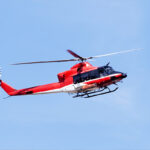Imagine providing medical aid in the heart of breathtaking landscapes, austere polar regions, remote jungles, or high-altitude terrain. Expedition jobs cater to daring, adaptable professionals who crave a life of adventure and challenges beyond the conventional healthcare setting.
Expedition teams work in a variety of industries and environments, allowing medical providers to gain diverse experience and develop limitless career prospects. However, healthcare providers in this field need a variety of competencies, including wilderness skills, effective coordination, and high-pressure decision-making.
If you’re interested in learning more about this exciting field in healthcare, here’s an overview of expedition medicine, the top positions you should consider, and whether an expedition job is right for you.
What Is Expedition Medicine?
When expeditions venture into extreme environments, team members need on-site health professionals to oversee their daily well-being and provide emergency medical care when necessary.
“Expedition medicine is the practice of medicine outside of a hospital in extreme environments,” says Eoin Walker, an advanced paramedic practitioner (APP) who has trained students in expedition and wilderness survival and has served as a pre-hospital delegate for the International Committee of the Red Cross (ICRC).
Wilderness expedition jobs require several technical medical skills as well as extensive survival skills related to extreme working conditions—which might range from scorching desert to dense jungle to icy tundra. “It’s the intersection where medicine meets the environment,” Walker explains. “It’s about trying to practice safe levels of care and set good baselines of care in environments that are ever-changing and quite dynamic.”
The scope of survival skills needed for expedition jobs often depends on the specific environment. However, most medical expedition professionals need to know how to:
- Take care of themselves
- Navigate effectively in remote areas
- Sanitize water for drinking
- Set up temporary care methods (e.g., stretchers)
- Assess acute injuries without technology
On a team level, these skills involve planning for common health issues that are likely to arise in the work environment and facilitating health maintenance throughout the expedition. “It’s a mitigation of ill health in extreme environments and the optimization of team dynamics of self-care and good individual health,” says Walker.
Top 6 Medical Expedition Jobs
People are often drawn to expedition medicine for the amazing experiences and professional growth, but it’s rarely the goal from the start.
“Expedition medicine is an experiential addition to your current career,” says Walker. Most healthcare providers working in expedition medicine initially pursue careers in conventional healthcare settings. However, after working in the field for a number of years, many discover expedition jobs through colleagues, international travel, and community service projects providing aid during a crisis.
Here are six roles to consider if you want to transition into a career in expedition medicine.
1. Expedition Doctor
Expedition doctors play a major role in expedition operations by delivering healthcare services and emergency medical care to expedition staff. They’re responsible for providing preventive care and treating injuries and illnesses. Expedition doctors need to be prepared for a wide spectrum of minor and major injuries, even if these instances don’t occur frequently. According to Walker, that’s why planning is a huge part of this role.
Experienced doctors often serve as part of the expedition leadership team as well. Before any expedition, doctors are responsible for assessing the types of challenges the team might face, so they can make necessary preparations. For example, expedition doctors might need to identify what protective equipment and technology is crucial to deliver proper care in extreme environments.
2. Wilderness Medicine Specialist
A wilderness medicine specialist is a physician with additional training in providing medical care in remote, austere, or wilderness settings. They’re knowledgeable in managing injuries, environmental hazards, and medical emergencies that may arise during expeditions.
“They need to understand how to adapt the in-hospital environment to serving people in the dynamic nature of expedition environments,” says Walker. Since specialists don’t typically require more advanced planning and leadership knowledge, these wilderness expedition jobs are ideal for healthcare professionals with less experience.
3. Expedition Nurse
An expedition nurse works alongside expedition doctors to provide medical care and support.
They assist with medical responsibilities, including:
- Conducting patient assessments
- Administering medications
- Handling various medical procedures
“You’re working in an environment where you don’t have much access to monitoring and access to definitive care or intervention,” says Walker. To bridge this gap, expedition nurses are usually experienced in emergency and trauma care.
4. Expedition Medic
Expedition medics are health professionals responsible for providing medical care and emergency response during an expedition. They ensure the well-being of the team, handle any medical emergencies, and often have wilderness medicine training.
“An expedition medic is all-encompassing of an expedition paramedic, nurse, and doctor,” Walker explains. Therefore, the magnitude of this role will depend on the type of expedition and your extreme medicine training. Expedition medic jobs are available at a variety of levels, providing a good entry path into the field.
5. Dive Medical Officer
During underwater or diving expeditions, a dive medical officer is responsible for assessing and managing the health and safety of divers. Thanks to their specialized knowledge in diving medicine, also known as hyperbaric medicine, dive medical officers are able to treat issues like decompression sickness and diving-related injuries.
Having diving experience also creates the opportunity to share your passion through educational roles, Walker notes. He has worked with teens, teaching them how to dive safely, serve others effectively, and take care of themselves in austere environments—including underwater.
6. Medical Researcher
Medical researchers focus on data collection for an expedition by studying and gathering health information related to the project’s objectives. Based on the expected environmental conditions, researchers investigate factors like high altitude and extreme temperatures to understand their effects on the human body.
Walker especially recommends research roles if you enjoy immersing yourself in the outdoors. “People love interacting and interfacing with nature, and if you can do that and get paid for it, it’s a win on both counts.”
Is Expedition Medicine Right For You?
Expedition medicine can be a life-changing career choice for individuals who are willing to embrace the unknown and enjoy new experiences. “People in this field like to be challenged and step outside of their comfort zones,” says Walker.
For example, medical expeditions jobs require a lot of adaptability and a diverse skill set to handle the extreme scenarios you might encounter. “People in the field take their specialist knowledge and transport it into a generalist, expedition environment,” says Walker.
Before taking on an expedition job, first evaluate your specialist medical skills and your ability and willingness to become more of a generalist healthcare provider.
Having a love of nature is another crucial component of expedition medicine. “I think people with a fundamental appreciation of nature should embrace their medical training in an expedition environment because it will stretch them and help them grow personally,” says Walker. “This work often reveals your ability to cope in certain environments, mental health resilience, and ability to take care of yourself.”
Start Your Next Adventure in Expedition Medicine
Expedition medicine is a unique field that fosters exploration and personal development. Whether you aspire to be a medic, researcher, or wilderness specialist, getting valuable training in healthcare and wilderness survival will help you perform effectively in challenging situations.
Northeastern’s Extreme Medicine program can serve as an excellent gateway to your desired career in expedition medicine. It’s designed to equip professionals with the skills to manage expedition resources, navigate serious crises, and analyze their surroundings.
“Northeastern gives individuals a toolkit to appreciate the various dynamics of expedition medicine and the various challenges they’ll experience,” says Walker. The program offers experiential learning through optional practicums that allow students to get immersed in real wilderness settings. “You can go into these environments more informed and appreciative of the dynamics in expedition medicine,” Walker concludes.
If you’re interested in learning more about the Extreme Medicine program, a Northeastern admissions counselor can help you explore your options.







Related Articles
4 Pressing Global Health Problems We Face Today
Global Health Careers: How Can I Make a Difference?
Compliance Specialists: Who They Are and What They Earn